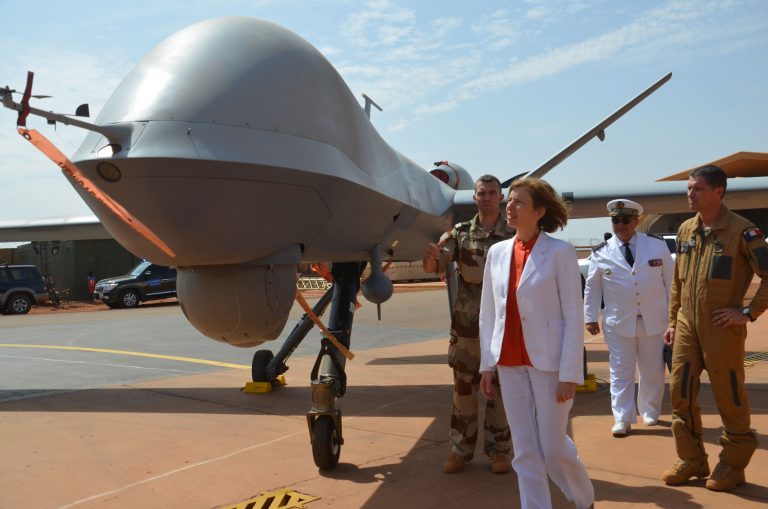West Africa-based ISIS leader, Abnan Abu Walid al-Sahrawi, has died due to wounds inflicted by a French drone strike last month. His death was announced on Twitter by French President Emmanuel Macron, stating that the terrorist leader was “neutralized by French forces.”
al-Sahrawi’s terror
Initially a separatist in the Western Sahara, the top ISIS leader, Abnan Abu Walid al-Sahrawi, migrated to Mali and Niger, joined al-Qaeda and then, in 2015, joined the Islamic State in Iraq and Syria (ISIS).
In 2017, al-Sahrawi’s rise to infamy came when he claimed that he orchestrated an ambush on a team of U.S. soldiers outside the village of Tongo Tongo in Niger, leading to the deaths of four U.S. soldiers, as well as at least six Nigerien soldiers.
The U.S. soldiers killed in the assault were: Staff Sgt. Dustin Wright, Sgt. LaDavid Johnson, Staff Sgt. Bryan Black and Sgt.1st Class Jeremiah Johnson.
In August 2020, he ordered the executions of six French charity workers and a Nigerian driver. Furthermore, militants of the Islamic State in the Greater Sahara (ISGS) have been implicated in the deaths of civilians in the Tillaberi region of Niger; an area known for being a location for the group’s activities.
Success
You are now signed up for our newsletter
Success
Check your email to complete sign up
As a result of his attacks, the U.S. government labelled him a global terrorist and placed a $US5 million dollar bounty on him. At the same time, the French government made al-Sahrawi enemy number-one as ISIS forces continued to assault U.S. troops, French aid workers and civilians; primarily Muslims.
The group is also believed to have foreigners in their custody, including American Jeffrey Woodke, who was abducted from his home in Niger in 2016.
The United Nations Security Council (UNSC) has expressed its concerns surrounding the expansion of Daesh/ISIS activities across the continent of Africa.
The strike
In August 2021, the French military, with support of the armed forces of Niger and Mali, launched an operation to locate and pursue al-Sahrawi.
In talks with ABC News, a French commander determined that al-Sahrawi had been “weakened” after two of his logistics commanders, Rhissa al-Sarhaoui and ‘Ikarey’, were killed. He also stated that U.S. intelligence had picked up the ISIS leader’s trail from Menaka and that he was approaching the Nigerien border.
According to French and U.S. officials, a military drone strike was called and successfully struck al-Sahrawi as he was en route to the border. French special forces later confirmed that the attack had hit al-Sahrawi and ten of his men, with the former dying of his wounds a month later.
Senior Africa analyst, Alexander Raymakers, of Verisk Maplecroft, a risk intelligence company says with al-Sahrawi’s death, ISGS operations will likely be disrupted, but the attack will not completely eliminate the group.
Sahel expert Heni Nsaibia said, “The killing of al-Sahrawi follows a series of tactical successes by the French, who recently killed or captured several senior ISGS commanders.” With their leadership crippled, the group could be disrupted by tensions surrounding the “question of who will succeed al-Sahrawi.”
‘Another major success‘
“It’s another major success in our fight against terrorist groups in the Sahel,” said Macron in his tweet announcing the death of al-Sahrawi.
French Defense Minister, Florence Parly, told reporters in Paris that the strike “reinforces [France’s] determination to fight terrorism” alongside its Sahel, U.S. and European allies.
“We will not leave the Sahel,” Parley declared, despite France’s plans to reduce its military presence in the region by early 2022.
French Foreign Minister, Jean-Yves Le Drian, has called upon African governments to strike while the power vacuum in ISGS was still there.
Rida Lyammouri, part of Moroccan think tank Policy Center for the New South, called the strike a “huge blow for ISGS”, but also stressed that al-Sahrawi will be replaced, and that true victory will only come when the civilian population is free of the terrorist group’s threats.
For the parents of Jeremiah Jonhson — one of the soldiers killed in al-Sahrawi’s 2017 ambush in Niger — the terrorist leader’s death was justice for their lost loved ones. They praised the French but wished the U.S. were the ones to lead the attack.
“We should have made the effort to either kill or capture the individuals who were responsible for the ambush of ODA 3212 ourselves, instead of relying on other countries,” Johnson’s mother and stepfather, Debbie and Ray Gannon, told ABC News.
In her book “Sacrifice: A Gold Star Widow’s Fight For The Truth”, Michelle Black wrote about her husband and the ambush.
“More death does not make losing Bryan any better. But knowing there is one less evil man in this world brings me peace,” Michelle said. “Perhaps it will prevent other families from suffering terror at his hands and for me that is enough.”
A ceremony was held for all four families of the fallen in July, LaDavid Johnson and Jeremiah Johnson, were both posthumously named honorary members of the Green Berets.

















